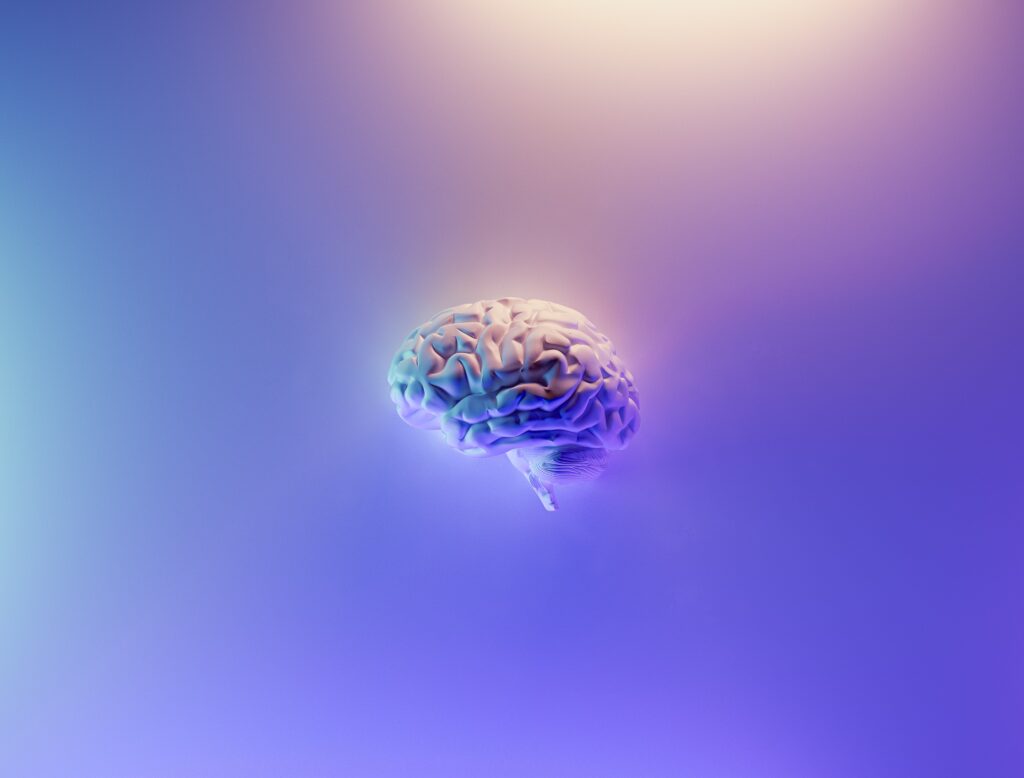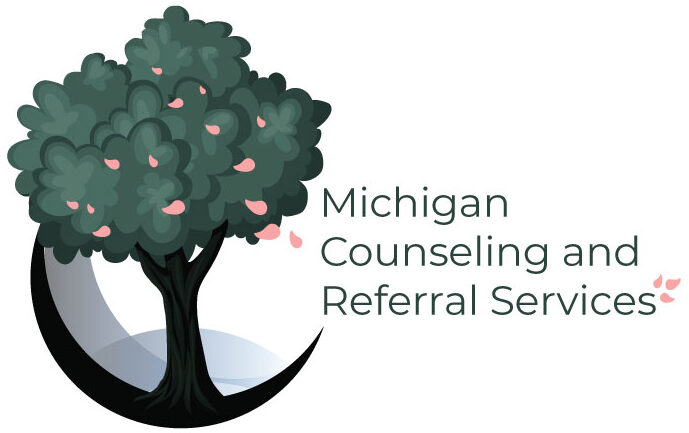Can Trauma Cause Neurodivergence
With Neurodivergence increasing in awareness in our world today, many peoples’ questions continue to grow more and more curious about the movement. One such question is can trauma cause neurodivergence?
The quick answer is yes: trauma can indeed cause neurodivergence in the brain. Neurodivergence in the brain is characterized as differences in brain structure resulting in changes in behavior, emotional processing, cognitive processing, sensory processing, and other factors having to do with how we use our nervous systems.
Trauma induces similar physiological changes in the brain. Following a traumatic event, your brain changes its structures to attempt to adapt to the traumatic event. These adaptations can be viewed as neurodivergence.
But what may be the bigger picture? We will explore neurodivergence in the research as well as my own experience treating acquired neurodivergence from trauma survivors.

Trauma And Neurodivergence In The Research
There is a high level of comorbidity between trauma and neurodivergence in the academic literature. Conditions like Autism, ADHD, OCD, Tourette’s Syndrome, and many other neurodivergences tend to correlate positively with trauma.
What this means is when one of the neurodivergences appears, trauma tends to also appear. This does NOT mean that trauma causes the neurodivergence. But it absolutely can cause neurodivergence based on our current body of literature in neuroscience.
Brain scans from fMRI have shown particularly how trauma survivors’ brains are structurally different than that of somebody who has not experienced trauma. Much of this idea is touched on in Bessel Van Der Kolk’s famous work The Body Keeps the Score.
When we experience trauma it literally changes the structure of our brains. This can affect processing (or lack of processing) of our environments due to this change in structure. For more information on this, check out my article on mental trauma.
This by definition means that trauma causes neurodivergences in the brain. Neurodivergence is very basically defined in a difference in brain structure-which is exactly what happens in trauma. Because traumatic experiences shape the brain’s new response system that tends to not line up with neurotypical responses, this neurodivergence is usually termed “acquired”.

Some Reasoning For Trauma In Neurodivergence
There are many reasons why neurodivergent folx may experience trauma at a higher rate than neurotypical folx. First off, folx who are neurodivergent tend to have a higher likelihood for experiencing systemic trauma. This often means that we are stigmatized due to our neurodivergence.
Much like other groups like LGBTQIA+, kink, non-monogamous folx, people of color, and people of low socioeconomic status we neurodivergent folx tend to be stigmatized due to our differences from the constructed “norm” of society.
Anybody who has been deemed “different” knows the stigma I’m talking about here. Being told that we’re not trying hard enough or that we do things that are different than neurotypical people makes us feel “othered”.
Feeling accepted is an important part of being human and living a healthy life. When we are not accepted by the broader society this can cause many trauma responses such as not trusting people, furthering our neurodivergent behaviors in response to being stigmatized, and even extreme mental illnesses like major depression, severe anxiety, and many others.
Stigma in mental health alone is enough to drive the epidemic. So it is important for us to recognize the role we play in either eliminating or driving the stigma for neurodivergent folx. We very well could be contributing to neurodivergent folxs’ trauma responses without even knowing it, which is a massive problem we face.
Trauma And Neurodivergence-The Chicken Or The Egg?
So it is pretty evident that trauma can cause neurodivergence. It is also clear that in neurodivergent populations, trauma is highly correlated. Now we have to ask does trauma cause neurodivergence or is it already there?
The answer to this question is not as simple as the original question of this article. A general rule of thumb I use is to look at when neurodivergence began in an individual.
I know for a fact that I am ADHD because my neurodivergent behaviors were present as a child throughout my life. I have experienced some minor traumas that may contribute to my dissociative and hyperactive tendencies. However through extensive testing, therapy, and self discovery I am confident that my brain is simply structured differently than others.
This is why it is always important to consider trauma when looking for the source of neurodivergence. Often times if somebody was traumatized that is usually where the neurodivergence comes from. This is NOT always the case and absolutely should be treated as a neurodivergence regardless of where it may or may not have come from.

Trauma And Neurodivergence In My Experience
I have worked with neurodivergent folx throughout my whole career and have seen the above research replicated in person. There have been many instances of neurodivergences causing trauma that have been presented to me in sessions. I have also worked with folx who are neurodivergent inherently and that’s the way they are.
Many of the neurodivergences I have seen in therapy are usually sensory processing divergences, Autism, ADHD, Tourette’s, OCD, and Trauma. Regardless of whether the neurodivergence was cause by trauma or not, I treat the neurodivergence as a simple neurodivergence.
Trying to focus on the cause of neurodivergence in therapy is NOT helpful in therapy since the neurodivergence, itself, is not the issue. Often times the issue is residing in a trauma or environmental factor such as systemic stigma. Most other cases of neurodivergence are best supported by Neurodivergent Affirming Therapy for long term support.
Otherwise, therapies that try to mask neurodivergent behaviors unfortunately do much more harm than good. They contribute to the stigma that we have come so far to reduce in mental health. It is our job as providers and neurodivergent folx to push back against the systemic stigma that is so ever-present in our field relating to neurodivergence.
Conclusion
So the moral of the story is that trauma can indeed cause neurodivergence through experience and adaptation. As a process, trauma changes the physical structure of our brain following a traumatic experience.
When the brain’s structure changes our behaviors, beliefs, emotions, motor activity, and other factors are all affected. These changes often show up at neurodivergences. And just like non-acquired neurodivergences, they’re absolutely okay to have.
The issue with trauma-induced neurodivergent behaviors is not with the neurodivergence, but the trauma response. Our overactive fight, flight, freeze response following a traumatic event is what we need to work on in therapy. This is because an overactivation of this response can make our lives much more difficult in gone unaddressed.
Otherwise, neurodivergences are all acceptable, harmless, and should be affirmed rather than masked.
The New Movement
Acquired neurodivergence is a newer movement within the ND movement emphasizing that trauma can cause neurodivergence. The power of neurodivergent voices has helped us expand our understanding of neurodiversity in our world.
It is important that we neurodivergent folx continue to make our voices heard in society. Bringing awareness to our divergences for neurotypical folx is the best way to allow us to best manage stigma not just in neurodiversity, but in all folx. Promoting empathy and understanding for our differences is a beautiful way to expand those practices outside of the neurodiversity circle and into others.
The beauty of our movement is we are all in this together! So make your voice heard!
Contact Me Directly!
All inquiries are responded to within 1-3 business days from inquiry. Feel free to use my contact information tomorrow to leave a message!
Hours: Monday-Thursday 12-7pm
Phone: (269) 350-3470
Email: antonio@michigancrs.com
Location: 1451 East Lansing Dr., Suite 219
East Lansing, MI 48823

That distinction between simple and acquired neurodivergence makes a lot of sense.
Yes! I’ve found it’s an interesting challenge in session (more for curiosity) to see which divergences may be acquired and which are simply organic. Fun stuff!
Hi! I would love to see more of the literature on this! Do you have any reference lists you can share?
This is a very interesting article and I very much appreciate its content, particularly its conclusions. I have one question about the use of the word ‘trauma’. I’m not sure if you are being exclusive here in ‘trauma’ being a physical alteration of the brain, from impact, whip-lash, punches, etc. Or can it include psychological trauma of the brain, such as: abuse (as a child or adult); bullying; parental neglect; etc…
I have diagnosed Autism but am unsure when it began. I was always ‘different’ as far as I can remember, but my father was a violent man and I was brought up in a hostile environment. I also suffered an acute head injury when I was in care home at about the age of 6. I have also taken several ADHD tests and score very highly on these.
I believe I am nuerodivergent in having Autism and ADHD, the question is where do these come from? Inheritance? Childhood physical trauma? Or childhood psychological trauma?
Many thanks,
Suzanne
Hi Suzanne,
I appreciate the question. I’m also sorry to hear that all happened to you. The answer is all of those things: inheritance, childhood physical trauma, and psychological trauma. You can also include your family’s genetic predispositions in this equation. The big question would be where do specific reactions/expressions/symptoms come from? I think that may be your questions.
The answer is that’s a tough thing to know, especially with childhood trauma in the picture. All we can do is speculate until we find that something works. I’d recommend reaching out for an assessment if you can in your state with somebody who understands trauma very well. They would be able to give more specific clinical recommendations. If you’re in Michigan, I’m happy to chat further! Best of luck!
-Antonio
Is it possible to develop ADHD or ADD due to PTSD or Family-Related mental trauma. And is it more likely if people in your family have simple neurodivergencey?
Hi there,
Great question! The simple answer is yes, it is possible. On the individual level, however, it’s a bit more complicated. Trauma can essentially look like anything due to its intense nature. You may develop dissociative symptoms, which often times in children and adults are diagnosed as ADHD. That’s one example in the myriad of symptoms that you may take on if you suffer from PTSD.
To answer your second question, yes as well! If your family has these types of neurodivergence in their genetic pool you are more likely to exhibit those types of symptoms. That doesn’t mean you absolutely will, or even that your symptoms are a result of trauma. The likelihood simply goes up. I hope this answers your questions!
-Antonio
Do neurodivergent people have difficulty telling the truth . Are they prone to exaggeration , black and white thinking and fantasies of grandeur ?
Hi Lori,
This is a great question! I would maybe tend to say it depends on the person. It’s likely that we may be more likely to exaggerate or lie in daily life for a myriad of reasons. One of the big ones is that we are expected to perform a certain way that is socially acceptable for others, which tends to be very draining. So in cases like that, lies could be a self-protective mechanism from being inauthentic for too long. Inauthenticity is really not tolerable for us, generally speaking of course. Fantasies of grandeur may come with an active imagination, so potentially yes we may be more prone to that, as well! I hope this was helpful!
-Antonio